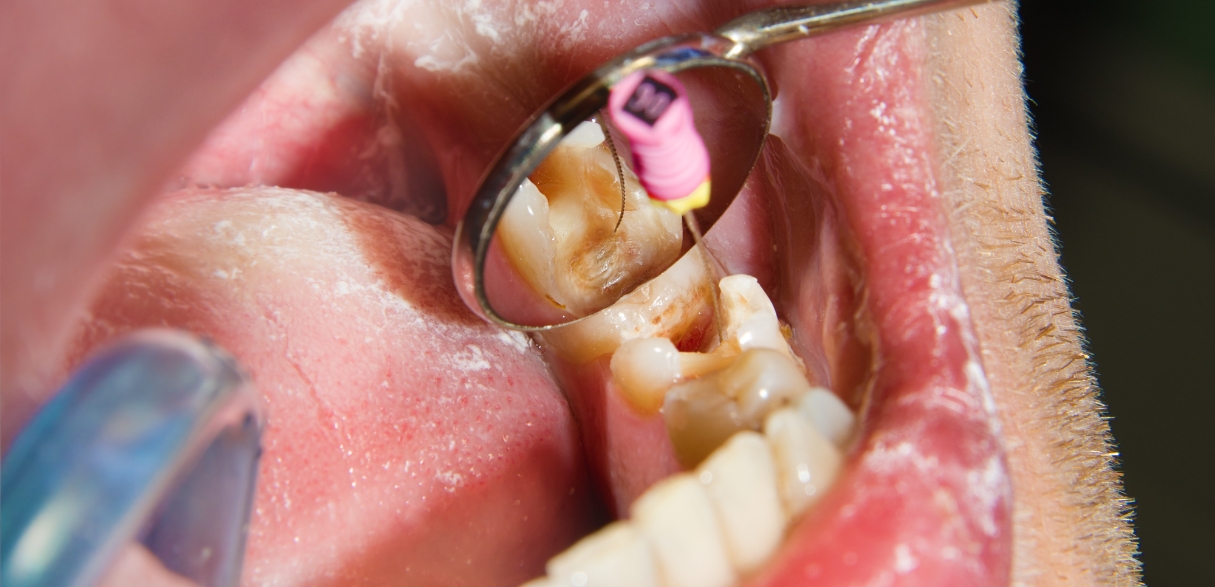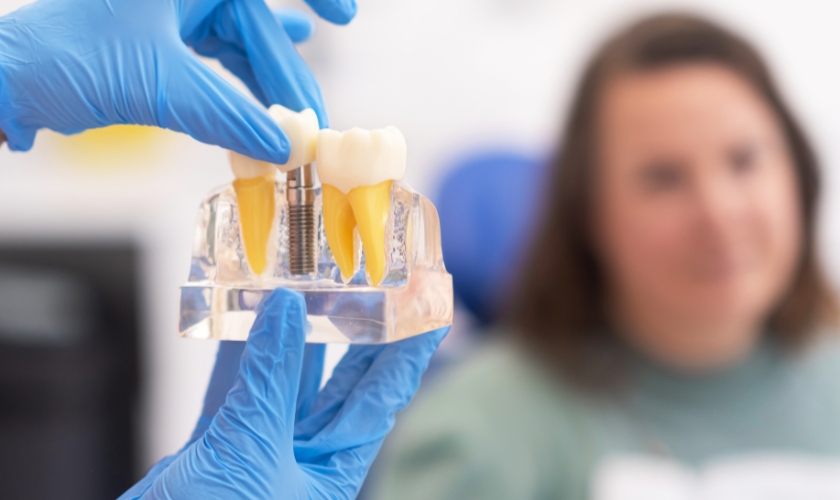Click To Text

Is your tooth broken or severely infected? You might have to choose between a root canal and a tooth extraction procedure. Choosing the right procedure is essential to preserving your oral health, preventing complications, and enhancing your long-term comfort. You can seek guidance from a dentist before making your final decision.
Read this blog to find out the factors that you must consider before making your choice.
What Are The Basics of Root Canal and Tooth Extraction?
The main goal of the root canal treatment is to save your natural tooth. During this treatment, the dentist will extract the infected pulp within your tooth. They will do this by creating a small hole in your infected tooth.
After that, the dentist will sanitize the area to fill it with a biocompatible substance. Finally, they will close the hole to prevent the bacteria from going in..
On the other hand, a complete extraction involves the complete removal of the infected tooth from the socket. Dentists usually recommend this when your tooth is severely cracked or infected.
Root Canal vs Tooth Extraction: What Are The Key Comparisons?
Here is a detailed comparison that can make it easy for you to choose between a root canal treatment in Elmwood Park IL, and a tooth extraction:
Pain As A Factor
The dentist will use sedation for both procedures. Therefore, you will not feel any pain during either of the treatments. However, usually, a simple tooth pulp removal tends to hurt less than a complete extraction. You might experience some swelling and soreness right after the surgery.
Cost Comparison
Are you hesitant about paying the initial high cost for a root canal? Remember that this option is a long-term investment in your oral health. Extractions might seem cheaper, but they involve additional costs of implants and bridges. You can see a dentist to assess the cost.
Recovery and Pain
Worried about the pain that a tooth pulp removal procedure might cause? The good news is that you will most probably feel nothing. Moreover, sedation makes the process easy, and you can heal in a matter of weeks. Extractions are fast but take time to heal, particularly with surgical extractions.
Longevity and Dental Health
A root canal can preserve your natural tooth structure while eliminating just the infection. These teeth can last for around 10 years or more.You can make it last with good oral hygiene. Extractions can remove the infected teeth, but the gap can make other teeth shift. Replacement options can help you avoid that.
What Dentists Recommend: Factors To Consider?
Here are some factors that may influence your selection of a dental procedure:
- You must first visit a professional dentist. They will examine your teeth and gums to determine whether you need a full extraction or pulp removal.
- Take your budget into consideration. Remember the cost of the potential follow-up treatments, such as crowns, bridges, etc.
- You may personally favor tooth extraction to prevent any potential infection risks in the near future.
Good oral care, proper diet, and avoiding habits like smoking and drinking can prevent dental infections.
You need to choose between a root canal and a tooth extraction based on the condition of your teeth and your budget. A dental professional can utilize their training to examine the severity of your tooth decay. Keeping your natural teeth can benefit you with functional and economic advantages. Alternatively, the extraction of infected teeth can offer lifelong protection.
Do you need more detailed advice? Get in touch with us today!






